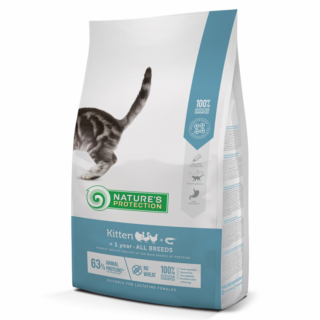Learn how to – Install CRI-O Container Runtime on Debian 11 / Debian 10.
In the year 2017, the Kubernetes project introduced to the public its Container Runtime Interface (CRI). CRI is a plugin interface designed to give kubelet (an agent used to start containers and create pods in Kubernetes cluster) the ability to use different OCI-compliant container runtimes, without modifications on Kubernetes code. The CRI-O project, build from the work of Kubernetes CRI, is a lightweight runtime for Kubernetes.
This short guide has only one intention, to enable you install and use CRI-O Container Runtime on Debian 11 / Debian 10. With CRI-O, you can run containers directly from Kubernetes without a need for any tooling. Provided the container is OCI-compliant, CRI-O will be able to run it. The introduction of CRI significantly reduced the maintenance overhead for the upstream Kubernetes community and all the vendors building solutions on top of the Kubernetes orchestration platform.
Here is an overview picture on how CRI-O works in Kubernetes ecosystem.

Install CRI-O Container Runtime on Debian 11 / Debian 10
Follow the steps provided in this guide to have a working setup ofCRI-O Container Runtime on Debian 11 / Debian 10.
Step 1: Update Debian System
We always start our installations by updating and upgrading the system.
sudo apt update && sudo apt -y upgradeIf the upgrade completes without errors, reboot the system before adding CRI-O APT repository to the system.
sudo rebootStep 2: Add CRI-O Kubic repository to Debian system
Since the scope for CRI-O is to work with Kubernetes in management and running OCI containers, it is recommended to install the version of CRI-O matching your Kubernetes release. The project provides some user-facing tools for troubleshooting containers on Kubernetes.
The Kubernetes release that will be running on my Debian servers is version 1.23. For this release, we’ll add CRI-O version 1.23. repository.
Adding repo on Debian 11 / Debian 10:
OS=Debian_10
CRIO_VERSION=1.23
echo "deb https://download.opensuse.org/repositories/devel:/kubic:/libcontainers:/stable/$OS/ /"|sudo tee /etc/apt/sources.list.d/devel:kubic:libcontainers:stable.list
echo "deb http://download.opensuse.org/repositories/devel:/kubic:/libcontainers:/stable:/cri-o:/$CRIO_VERSION/$OS/ /"|sudo tee /etc/apt/sources.list.d/devel:kubic:libcontainers:stable:cri-o:$CRIO_VERSION.listImport GPG key used in packages signing after repository has been added to the system.
curl -L https://download.opensuse.org/repositories/devel:kubic:libcontainers:stable:cri-o:$CRIO_VERSION/$OS/Release.key | sudo apt-key add -
curl -L https://download.opensuse.org/repositories/devel:/kubic:/libcontainers:/stable/$OS/Release.key | sudo apt-key add -
Test if repo is working
$ sudo apt update
Hit:1 http://security.debian.org/debian-security bullseye-security InRelease
Hit:2 http://deb.debian.org/debian bullseye InRelease
Hit:3 http://deb.debian.org/debian bullseye-updates InRelease
Get:4 http://download.opensuse.org/repositories/devel:/kubic:/libcontainers:/stable:/cri-o:/1.22/Debian_10 InRelease [1604 B]
Hit:5 http://deb.debian.org/debian bullseye-backports InRelease
Get:6 https://download.opensuse.org/repositories/devel:/kubic:/libcontainers:/stable/Debian_10 InRelease [1629 B]
Get:7 http://download.opensuse.org/repositories/devel:/kubic:/libcontainers:/stable:/cri-o:/1.22/Debian_10 Packages [1659 B]
Get:8 https://downloadcontent.opensuse.org/repositories/devel:/kubic:/libcontainers:/stable/Debian_10 Packages [30.6 kB]
Fetched 35.5 kB in 2s (17.2 kB/s)
Reading package lists... Done
Building dependency tree... Done
Reading state information... Done
3 packages can be upgraded. Run 'apt list --upgradable' to see them.Step 3: Install CRI-O onDebian 11 / Debian 10
Perform update before installingCRI-O onDebian 11 / Debian 10:
sudo apt update
sudo apt upgradeInstallCRI-O onDebian 11 / Debian 10 using the commands:
sudo apt install cri-o cri-o-runcAccept installation prompt with y key.
eading package lists... Done
Building dependency tree... Done
Reading state information... Done
The following additional packages will be installed:
conmon containers-common
Suggested packages:
containernetworking-plugins
The following NEW packages will be installed:
conmon containers-common cri-o cri-o-runc
0 upgraded, 4 newly installed, 0 to remove and 0 not upgraded.
Need to get 23.2 MB of archives.
After this operation, 112 MB of additional disk space will be used.
Do you want to continue? [Y/n] y
Confirm version installed:
$ apt show cri-o
Package: cri-o
Version: 1.23.0~0
Priority: optional
Section: devel
Maintainer: Peter Hunt <haircommander@fedoraproject.org>
Installed-Size: 98.3 MB
Depends: libgpgme11, libseccomp2, conmon, containers-common (>= 0.1.27), tzdata
Suggests: cri-o-runc | runc (>= 1.0.0), containernetworking-plugins
Replaces: cri-o-1.19, cri-o-1.20, cri-o-1.21
Homepage: https://github.com/cri-o/cri-oNow that CRI-O is installed on our Debian system, let’s proceed to start the daemon service.
sudo systemctl start crio.serviceService has to be enabled for automatic start when the system is rebooted.
$ sudo systemctl enable crio.service
Created symlink /etc/systemd/system/cri-o.service → /lib/systemd/system/crio.service.
Created symlink /etc/systemd/system/multi-user.target.wants/crio.service → /lib/systemd/system/crio.service.Service status checking:
$ systemctl status crio
● crio.service - Container Runtime Interface for OCI (CRI-O)
Loaded: loaded (/lib/systemd/system/crio.service; enabled; vendor preset: enabled)
Active: active (running) since Thu 2021-12-09 11:51:30 UTC; 49s ago
Docs: https://github.com/cri-o/cri-o
Main PID: 56978 (crio)
Tasks: 9
Memory: 13.8M
CPU: 151ms
CGroup: /system.slice/crio.service
└─56978 /usr/bin/crio
Dec 09 11:51:30 debian-bullseye-01 crio[56978]: time="2021-12-09 11:51:30.286809913Z" level=info msg="Installing default AppArmor profile: crio-default"
Dec 09 11:51:30 debian-bullseye-01 crio[56978]: time="2021-12-09 11:51:30.345230742Z" level=info msg="No blockio config file specified, blockio not configured"
Dec 09 11:51:30 debian-bullseye-01 crio[56978]: time="2021-12-09 11:51:30.345278849Z" level=info msg="RDT not available in the host system"
Dec 09 11:51:30 debian-bullseye-01 crio[56978]: time="2021-12-09 11:51:30.345831790Z" level=warning msg="Error validating CNI config file /etc/cni/net.d/100-crio-bridge.conf: [failed to find plugin>
Dec 09 11:51:30 debian-bullseye-01 crio[56978]: time="2021-12-09 11:51:30.345957038Z" level=warning msg="Error validating CNI config file /etc/cni/net.d/200-loopback.conf: [failed to find plugin ">

Leave a Reply
You must be logged in to post a comment.